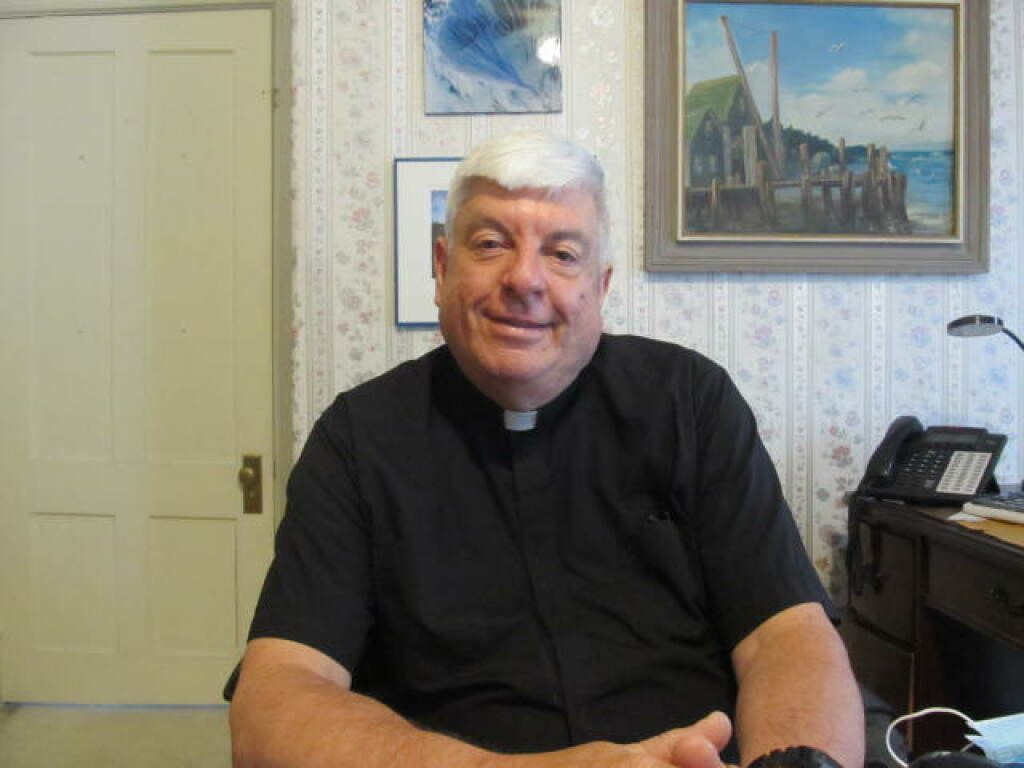 Called to an Authentic Life
Called to an Authentic Life
Homily for the Third Sunday in Ordinary Time
January 24, 2021
In today’s gospel passage Jesus begins his public ministry as an evangelist, announcing the gospel, or good news. He states the theme, the foundation for all he will teach and all he will do: “This is the time of fulfillment. The kingdom of God is at hand. Repent, and believe in the gospel.”
We find that Jesus was a very effective evangelizer. When he calls the first disciples, what do they do? Simon Peter and his brother Andrew “abandoned their fishing nets and followed him.” With James and John it’s even more dramatic: “So they left their father Zebedee in the boat along with the hired men and followed him.” I have often wondered how Zebedee felt when his sons abandoned him and the family business. At any rate, Jesus was very effective as a preacher and evangelizer. Why do you suppose that was so?
Let’s begin with a story about a more modern spreader of the gospel. A young missionary spotted a woodcutter at work in a forest. “What a perfect opportunity for me to make a convert for Jesus,” he thought when he learned the woodcutter had never heard of Jesus Christ. All day as the man chopped wood, carried it to his wagon and walked back to chop another load, the young missionary preached to him about Jesus. Toward the end of the day he asked, “Well, are you ready to accept Jesus Christ?” “I don’t know,” replied the woodcutter. “All day long you spoke to me of this Jesus who helps us with all our burdens, yet you never helped me with mine.”
This story remind us that Jesus calls us, not just to have the right ideas about him and to know the doctrine the Church teaches. He calls us, first and foremost, to a way of life. The young missionary did not succeed because he forgot that actions speak louder than words.
One of the extraordinary documents on evangelization, or spreading the gospel, was written many years ago by Pope Paul VI. Perhaps the most memorable line from the entire text is this: “Modern man listens more willingly to witnesses than to teachers, and if he does listen to teachers, it is because they are witnesses.” In other words, you have to practice what you preach. That, I believe, is what made Jesus so attractive. He didn’t just talk about compassion; he showed it to those who were marginalized and forgotten. He didn’t just preach that we should take care of the sick; he touched and healed those who came to him. He didn’t just warn others about the danger of having too many possessions; he lived as a poor man. He was the real thing, the genuine article.
Another aspect of Jesus’ proclamation was that there was an urgency about his message. If he called someone to follow him, he meant today, not tomorrow. One of the classic examples of delayed conversion is that of St. Augustine, who lived some four centuries after Christ. Augustine was a very gifted young man who received a top notch education. He enjoyed the good life, being somewhat of a playboy. His mother, Monica, a devout Christian, prayed for many years for her son’s conversion. At a certain point, Augustine felt the attraction and the beauty of the Christian faith, but he was not ready to change his ways. His famous prayer at that time was: “Lord, make me chaste (sexually pure), but not yet!” Later, when Augustine was converted to the faith, he wrote beautifully about how God never gave up on him:
Late have I loved you, O Beauty ever ancient, ever new, late have I loved you! You were within me, but I was outside, and it was there that I searched for you. In my unloveliness I plunged into the lovely things which you created. You were with me, but I was not with you. Created things kept me from you; yet if they had not been in you they would not have been at all. You called, you shouted, and you broke through my deafness. You flashed, you shone, and you dispelled my blindness. You breathed your fragrance on me; I drew in breath and now I pant for you. I have tasted you, now I hunger and thirst for more. You touched me, and I burned for your peace.
In our own day one of the best known and most effective evangelists was Billy Graham. Graham told a self-deprecating story that reveals his sense of humor, but also indicates that the gospel was never far from his mind. One day, in an unfamiliar city, he asked a young boy where the post office was, and the youth gave him directions. Graham then told him about the prayer gathering he was having, and said, “If you come tonight, I’ll show you the way to Jesus Christ.” The child responded, “I don’t know…you didn’t even know the way to the post office.”
Sometimes, life itself evangelizes by confronting us with some painful issues. An elderly friend of mine once told me that when he was young, he flitted about here and there and he hardly ever thought about God. But as he got older, he had some health scares, had lost some people very close to him, and began to sense that he had to get into a right relationship with the Lord. He said, after putting it off for years, he had even bought a cemetery plot!
One final point about Jesus as an evangelizer. In his pronouncement, Jesus says, “The Kingdom of God is at hand.” But this kingdom is unique in that it is not a geographic kingdom. I like to think of it as an action: “kinging” or reigning. Jesus’ kingdom exists wherever people let him in, allowing Jesus to lead them to a life lived authentically. A few years ago, there was a rather effective approach that served as a reminder that we need to let Jesus into our lives on a daily basis. Do you remember the bracelets with the initials “wwjd”—what would Jesus do? Those bracelets reminded us to bring Jesus with us into the everyday, so that he could be king of our choices, decisions and concrete actions. Asking what Jesus would do helps us to overcome the things we don’t like, both in ourselves and in our world.
For example, if we don’t like the divisions in our society, we have little influence over society as a whole. But we can begin to model the behavior we want to see, by being reconciled with someone we dislike, speaking to someone we’ve avoided, or forgiving someone who has hurt us. Feeling sorry for people who are going hungry won’t end world hunger, but we can donate food or money to programs that help feed the poor in our community. Seeing the destructive power in the anger of those who attacked the capitol can move us to work on our relationship with someone that makes us angry. By asking what Jesus would do, we don’t live our faith in the abstract, in the realm of doctrines and definitions. By letting Jesus rule over our actions, we are becoming the real thing: a Christian not just in name, but in fact. We become more authentic human beings, more like Jesus. And we, in turn, become evangelizers who can have an impact on our part of the world.v
You might also like
Father's Homilies




